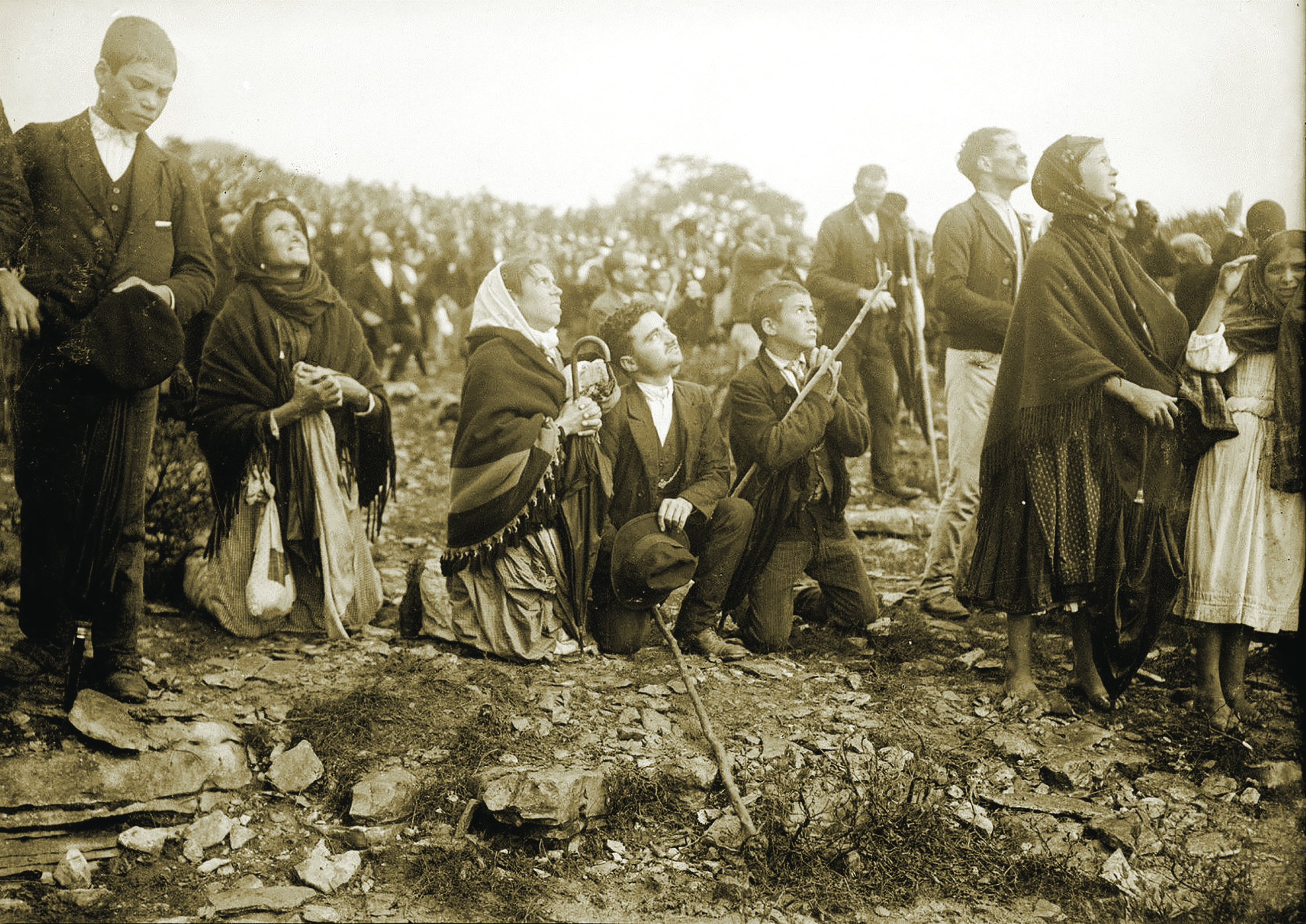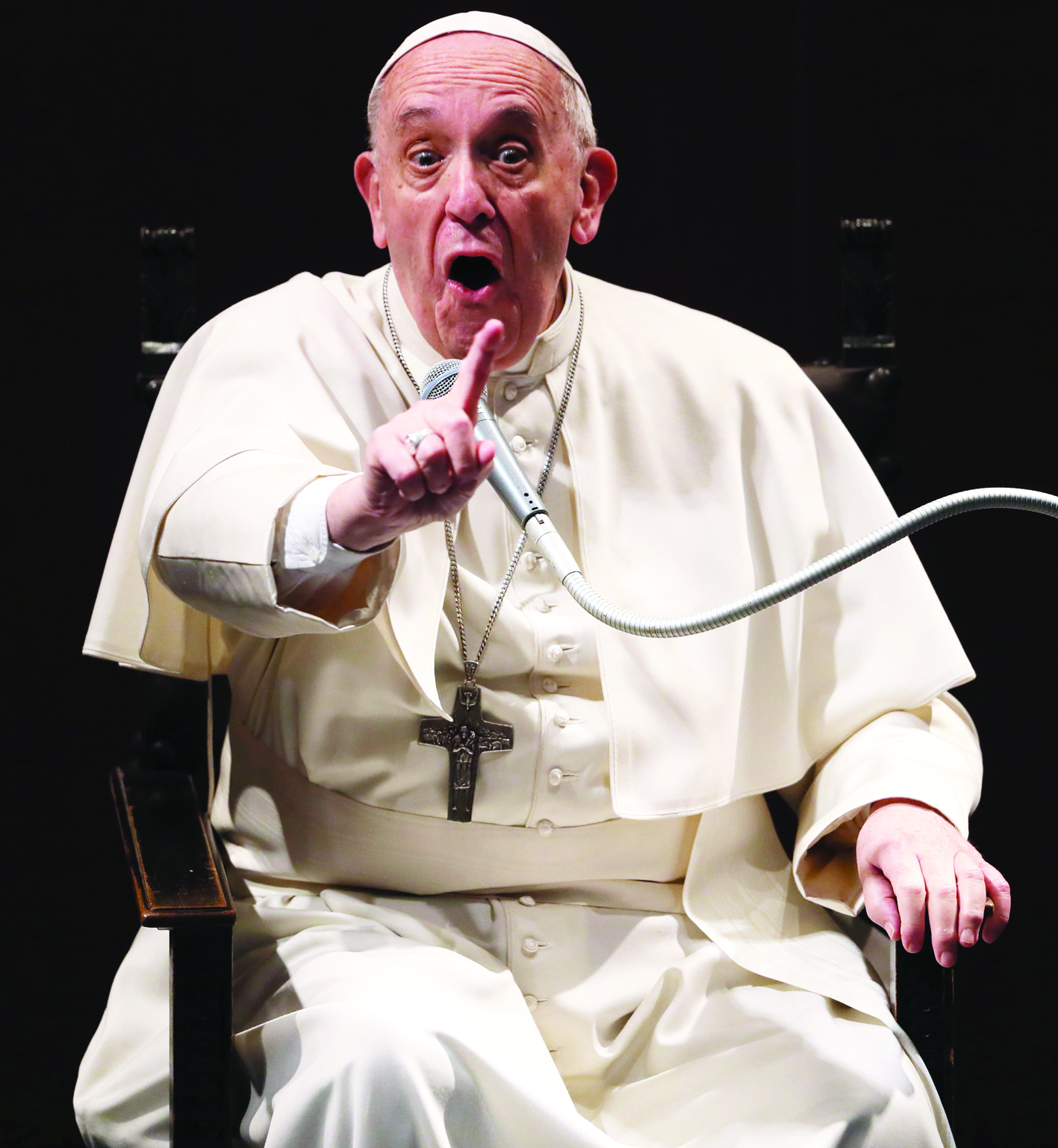Head of Chinese bishops, originally appointed without Vatican approval, Bishop Joseph Shen Bin of Shanghai promotes “Sinicization” while the still-unsigned agreement between the Vatican and China remains in play
By ITV staff/Vatican News

Cardinal Pietro Parolin with Bishop Joseph Shen Bin of Shanghai at a conference at the Pontifical Urban University in Rome on May 21, 2024 (photo: Elise Ann Allen/Crux.)
The Pontifical Urban University in Rome hosted a conference on May 21 to mark the 100th anniversary of the Concilium Sinense, the first and only Council of the Chinese Catholic Church, which was held in Shanghai in May and June of 1924.
It was the first time in memory that a bishop from mainland China had come to Rome to attend a Vatican conference: Bishop Joseph Shen Bin, head of the government-recognized Chinese episcopal conference, was in fact the keynote speaker at the event.
Pope Francis sent a video message to participants attending the event, calling the anniversary “a precious occasion for many reasons.”
He noted that the 1924 Sinense Council marked an important step forward for the Catholic Church in China.
“The Holy Spirit,” he said, “brought them together, allowed harmony to grow among them, led them along paths that many of them would not have imagined, even overcoming perplexities and resistance.”
At the time, Council attendees hailed from distant countries and many resisted the idea of allowing Chinese-born priests and bishops to lead dioceses.
During the Sinense Council, however, they agreed that the Church in China should have “a Chinese face,” since “Christ’s proclamation of salvation can only reach every human community and every single person if it speaks in their ‘mother tongue.’”
“But the Council of Shanghai did not only serve to forget the erroneous approaches that had prevailed in previous times,” Francis said. “The participants of the first Chinese Council looked to the future. And their future is our present.”
Church must have Chinese point of view
Bishop Shen in his remarks referred to the “superior” attitude of those Western missionaries and their work to “protect foreign powers” through “unequal treaties” that China signed with various European nations over the centuries.
Speaking through an interpreter, Shen said the Catholic Church today must have a Chinese point of view, respect Chinese culture and develop alongside Chinese society. He also noted that the Pope has underlined that being a good Christian is an integral part of being a good citizen.
Vatican Secretary of State Cardinal Pietro Parolin, 69, gave an address which took its reference point from the experience of Cardinal, thenBishop, Celso Costantini, who arrived in China in 1922 as the Vatican’s first apostolic delegate to China.
“Bishop Costantini,” said Cardinal Parolin, “noted a persistent, and then excessive, dependence on the foreign component of the mission: this imbalance was manifested both by the almost exclusive presence of foreign clerics and by a certain predilection of certain missionary circles for the patronage established by the great Western powers and the pastoral methods which resulted from it.”
“After only a month in China, Costantini was to note, not without a note of regret: ‘The [Christian] religion came from Palestine to the Roman world: yet, among so many accusations brought against it, we do not find that of [being a] foreign religion, or it is only touched upon. We have been in China for more than three centuries. The entire ecclesiastical hierarchy is [still] foreign. Is this the Church that Christ wanted?’ (With the Missionaries in China, vol. I, X)”
However, noted Parolin, “Costantini’s missionary and diplomatic ‘strategy’ was based not only on inculturation and indigenization, but also on a second pillar, namely the need for the Holy See and the Chinese authorities to establish a direct dialogue between them. ….
“It derived from the just conviction that in China, distinguishing missionary work from international politics was in reality the only way to protect it and restore its authenticity and fruitfulness: to this end, it was therefore essential that the Holy See and the Chinese government learn to dialogue with each other directly, without intermediaries and in a necessary work of reciprocal discovery.
“Only in this way can reciprocal prejudices be overcome, in particular those which concern the supposed political nature of Catholic missionary activity,” he said.
Meanwhile, Vatican-China deal up for renewal
Later, Cardinal Parolin commented to reporters on the Church’s controversial 6-year-old deal with Chinese authorities, “We are all interested in the agreement being renewed.”
He also remarked that “We have long hoped to have a stable presence in China,” though he noted that it “may not initially have the form of a pontifical representation of an apostolic nunciature.”
So it seems logical that the 2018 secret agreement between the CCP and the Vatican is part of Cardinal Parolin’s vision of establishing more solid ties with the Chinese government. He told LifesiteNews in late April that the Vatican does indeed plan on renewing the agreement for the third time.
Although details of the agreement have never been divulged officially, it apparently allows for the Chinese Communist Party (CCP) to appoint Catholic bishops, presumably with the Pope’s approval, although that aspect has already been violated — at least twice.
In fact, in April 2023, Bishop Joseph Shen Bin himself was made head of the Diocese of Shanghai, effective July 2023, and also without Vatican knowledge, although the Pope finally approved the move three months later.
So it is not surprising that commenters like Ed Condon of The Pillar suggest that, given the CCP’s track record, Cardinal Parolin is perhaps “mapping a road to nowhere.”

Pope Francis delivers his video message to the May 21 conference marking 100 years since the historic Concilium Sinense. (photo: Vatican Media)
A real agreement?
Asked in 2023 why the details of the Sino-Vatican deal remain secret today, Cardinal Parolin replied that “the text is confidential because it has not yet been finally approved.”
The deal, which “revolves around the basic principle of consensuality of decisions affecting bishops,” is effected by “trusting in the wisdom and goodwill of all,” he said.
However, as longtime China expert Steven Mosher observed, “An agreement implies an arrangement, a promise, or a contract made between two parties, the terms of which both sides agree to abide by. While the Vatican has certainly proposed terms to the lower-ranking officials of the Chinese Communist Party (CCP) that it has met with over the years, the Chinese side has never signed on.”
“Six years later, the Vatican is still hoping against hope that the CCP will one day sign,” said Mosher.
Meanwhile, the CCP continues to persecute Catholics who refuse to go along with its dictates; for example, Bishop Peter Shao Zhumin of Wenzhou, who has refused to register with the Catholic Patriotic Association, was arrested earlier this year and has not been heard from since.
Mistrust must be overcome
In a July 2023 interview with Vatican News, Cardinal Parolin defended the continuation of the agreement despite problematic developments since its inception in 2018. He said that “regular communication of the Chinese Bishops is needed with the Bishop of Rome, indispensable for effective communion, knowing that all this belongs to the structure and doctrine of the Catholic Church, which the Chinese authorities have always said they do not want to alter.”
Cardinal Parolin said Chinese Catholics “sincerely want to be loyal citizens and be respected in their conscience and in their faith.”
Therefore, “mistrust towards Catholicism needs to be overcome, which is not a religion to be considered foreign, let alone contrary, to the culture of that great people.”
Many are not convinced, however, that the “mistrust” on the part the Chinese authorities toward the Catholic Church is actually founded on its fear of “foreign” influences; it seems likely that the Catholic faith itself, which worships a loving Creator and Lawgiver God who is above man — and therefore above the CCP — is the real object of their displeasure.






Facebook Comments